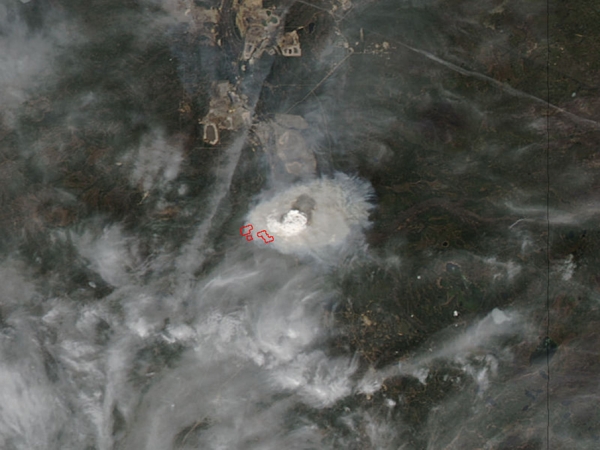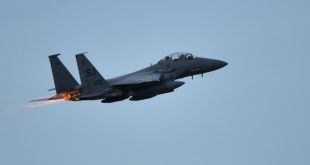
The Algerian paradox
So, the countries-exporters of oil, OPEC could agree to reduce the total oil production from the current of 33.24 million barrels per day to 32.5-33 million b/d. While this solution has the informal status of the official, confirmed in writing arrangement, should appear at the summit of OPEC late November in Vienna.
Ahead of the summit in Algeria, most observers were skeptical, but in spite of everything, to reach an agreement failed. Skepticism was caused by the continuing disagreement between the key players of OPEC — Iran and Saudi Arabia — on the question of freezing of production. Come to a preliminary agreement in Algeria was largely due to a softening of the position of Saudi Arabia, which, in fact, will have to assume the major part of the future production decline. While there is no clarity neither on the exact date that it will start to work the agreement about the freezing, nor the duration of its action. Both of these parameters will also be discussed at the end of November in Vienna. In the near future should be created a working group that to the 170 th meeting of OPEC, scheduled for November 30, submit a plan for reductions of oil production in each country. And after the OPEC countries will actually reduce production will begin negotiations with other producing countries outside the organization, including Russia and Azerbaijan.
The real market and the market of paper
Market on reports about the agreement in Algeria responded immediately and quite expected. Oil prices immediately jumped by more than 5%, raising the price of Brent crude to $ 49 per barrel. If the barrel will let go to slow but steady growth, it will become an important tool for all countries-oil exporters, including Russia and Azerbaijan.
The fact is that after a dramatic two-fold drop in prices for “black tlotr” two years ago, virtually all oil-producing countries are faced with economic difficulties. Their degree were different: in Venezuela, as is well known, is rampant full-blown economic crisis, Azerbaijan and Russia dramatically lowered courses of their national currencies, Saudi Arabia is not counted $ 100 billion in income, and Norway was forced for the first time in many years, print your emergency Fund…
And now the speculators for the first time faced with a consistent position of oil producers explicitly configured not to halt the erosion of the barrel.
But for euphoria, dreaming about that barrel now quickly return to the level over $ 100, official Baku is clearly not worth it. We must understand that in the real market, where real turn volumes of oil supply still exceeds demand by 1-1. 5 million barrels per day in global scale, and absolutely nothing after a meeting in Algeria here has not changed. That is, objectively, the barrel remains under pressure.
Another thing is that on the speculative paper market where in the course of stocks, derivatives, futures, fluctuations caused by verbal intervention. Here on speculators, most likely, the Algiers agreement and is unable to influence. But it is unlikely they will cover some kind of frantic panic or, on the contrary, euphoria. Most likely, the price of oil, at least until the end of the year will remain approximately the same as it was last time — that is, somewhere around 45-50 dollars per barrel.
God forbid that she skipped the mark. But events in the real market may lower the barrel again. For example, if you happen to a serious decline in China’s economy — a country that now presents the greatest demand for oil.
Vienna will judge all
Another question — whether the Algiers agreement is really confirmed on paper two months later in Vienna? And here the naysayers. In particular, these include one of the leading Russian fuel and energy industry, managing partner of consulting company RusEnergy Michael Krutikhin.
“The message on the conclusion of an agreement — no more than a verbal intervention designed to support market — said the expert. In any case, until November one to cut production will not happen, but not likely to happen this and after November”.
According to Krutikhin, none of the OPEC members in the absence of a formal agreement to freeze not only with other countries in the cartel, but with all the oil-exporting countries to voluntarily cut their production will not. The reason is very simple and straightforward — if they do leave the market, their place will immediately be filled by someone else. At least the United States, with its shale oil, because America is no restrictions on. It is well known that the us shale companies need prices at 48-50 dollars per barrel to profit, and accordingly, increase production. The US has already announced that it is ready for the year to increase production by 700 thousand barrels per day — this is a very serious figure.
The Gulf countries are quite capable to work and increase production in the current price environment, for the countries of Africa and Latin America oil production is on the verge of profitability, and for the individual countries and beyond.
In General, the agreements reached in Algeria is good news for the market, able to support the price of a barrel and push it up. But to overemphasize them is not: if in two months in Vienna, these agreements are not bonded to the formal agreement, the barrel will begin to fall again.







